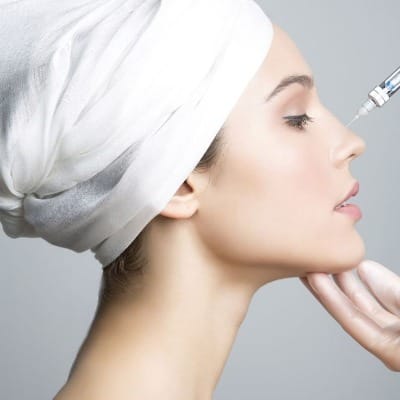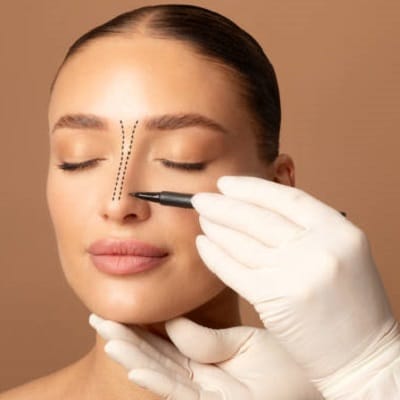
Undergoing rhinoplasty in Islamabad can be a transformative experience, helping individuals achieve the facial harmony and confidence they desire. However, like any surgical procedure, rhinoplasty comes with its challenges during the recovery phase, and one common concern is swelling. Swelling after rhinoplasty is a natural part of the healing process, but minimising and managing it can significantly enhance the overall recovery experience.
In this blog post, we’ll explore practical strategies and tips on preventing swelling after a rhinoplasty procedure, ensuring a smoother and more comfortable recovery.
Swelling after Rhinoplasty:
Before diving into prevention strategies, it’s essential to understand why swelling occurs after a rhinoplasty procedure. Rhinoplasty involves reshaping the nasal structures, including bone, cartilage, and soft tissues.
The manipulation of these tissues triggers the body’s natural inflammatory response, leading to swelling. While some swelling is expected, excessive or prolonged swelling can impact the final results and prolong recovery.
Preventive Measures:
Follow Postoperative Instructions:
One of the fundamental steps in preventing swelling after rhinoplasty is to adhere strictly to the postoperative instructions provided by your surgeon. These guidelines are tailored to your case and designed to optimise the healing process. This may include instructions on caring for the surgical site when taking prescribed medications and any restrictions on physical activities.
Elevate Your Head During Sleep:
Elevating your head while sleeping is a simple yet effective way to minimise swelling. Keeping your head elevated, preferably at a 30 to 45-degree angle, helps to reduce fluid accumulation in the nasal tissues. Consider using extra pillows or a wedge pillow to maintain the recommended head elevation during the initial recovery days.
Apply Cold Compresses:
Cold compresses can be valuable in reducing postoperative swelling. Applying a cold compress to the nasal area for short intervals in the first few days after surgery can constrict blood vessels, minimise inflammation, and provide relief. Ensure that the compress is wrapped in a thin cloth to avoid direct contact with the skin, and limit the application to around 15 minutes at a time.
Stay Hydrated:
Proper hydration is crucial for overall health and can aid in reducing swelling after rhinoplasty. Drinking adequate water helps flush out toxins and supports the body’s natural healing processes. However, avoiding excessive salt intake contributes to fluid retention and exacerbating swelling.
Avoid Strenuous Activities:
Rigorous physical activities can increase blood flow to the face, potentially worsening swelling. During the initial stages of recovery, avoiding strenuous exercises, heavy lifting, and activities that may elevate your heart rate is essential. Follow your surgeon’s recommendations regarding the appropriate timeline for resuming physical activities.
Take Prescribed Medications:
Your surgeon may prescribe medications, such as anti-inflammatory drugs or pain relievers, to manage swelling and discomfort. Taking these medications as directed is crucial to optimise their effectiveness in controlling inflammation. If you have concerns or experience unexpected side effects, promptly consult your surgeon.
Maintain a Healthy Diet:
A well-balanced diet rich in vitamins and nutrients is essential for the body’s healing process. Include foods high in antioxidants like fruits and vegetables to support the immune system and promote tissue recovery. Additionally, avoid foods known to contribute to inflammation, such as processed foods and those high in salt.
Be Patient and Manage Stress:
Patience is critical during the recovery period. Stress can contribute to inflammation, so managing stress through relaxation techniques, meditation, or activities that bring you joy is essential. A calm and positive mindset can positively impact your well-being and aid a smoother recovery.
All Summed Up!
Preventing and managing swelling after a rhinoplasty procedure is a collaborative effort between you and your surgical team. Following these tips and staying committed to your postoperative care plan can enhance the likelihood of a successful and comfortable recovery.
Remember that individual experiences may vary, and it’s crucial to communicate openly with your surgeon at SKN Cosmetic Clinic Islamabad about any concerns or questions you may have during the recovery process. With proper care and attention, you can look forward to unveiling your rhinoplasty journey’s beautiful, natural results.




